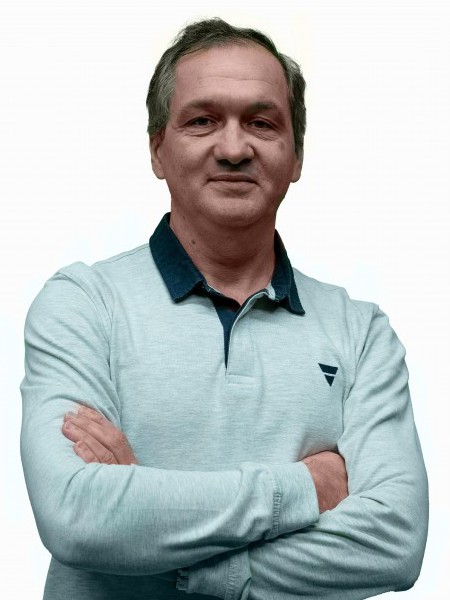resumo
The field angle dependence of the magnetization reversal in 20 nm thick polycrystalline Ni films grown on piezoelectric (0 1 1) [PbMg1/3Nb2/3O3](0.68)-[PbTiO3](0.32) (PMN-PT) substrates is analysed quantitatively to study the magnetic anisotropy induced in the film by poling the piezosubstrate. While the PMN-PT is in the unpoled state, the magnetization reversal is almost isotropic as expected from the polycrystalline nature of the film and corresponding to an orientation ratio (OR) of 1.2. The orientation ratio is obtained by fitting the angular dependence of normalized remanent magnetization to an adapted Stoner-Wohlfarth relation. Upon poling the piezosubstrate, a strong uniaxial anisotropy, whose hard axis is oriented along the [1 0 0] direction of the PMN-PT, is induced, yielding an OR of 3.1. The angular dependence of the coercivity for the poled state is found to consist of a strong increase for increasing field angles away from the easy axis direction and of a sharp decrease for angles close to the hard direction. It is best described by a two-phase model, implying that the magnetization reversal is determined by both, coherent rotation of the magnetic moments, according to the Stoner-Wohlfarth model, and the gradual displacement of the domain walls in obedience to the Kondorsky model.
palavras-chave
FIELD
categoria
Physics
autores
Tkach, A; Kehlberger, A; Buttner, F; Jakob, G; Eisebitt, S; Klaui, M
nossos autores
agradecimentos
This work was funded by the EU's 7th Framework Program IFOX (NMP3-LA-2010 246102), the Graduate School of Excellence Materials Science in Mainz (GSC 266 MAINZ), the German Science Foundation (DFG KL1811, SFB TRR173 Spin+X) and the ERC (2007-Stg 208162, 2014-PoC 665672). A. Tkach acknowledges also funding within the scope of the project CICECO-Aveiro Institute of Materials POCI-01-0145-FEDER-007679 (FCT Ref. UID/CTM/50011/2013), financed by national funds through the FCT/MEC and when appropriate co-financed by FEDER under the PT2020 Partnership Agreement as well as within independent researcher grant IF/00602/2013.


